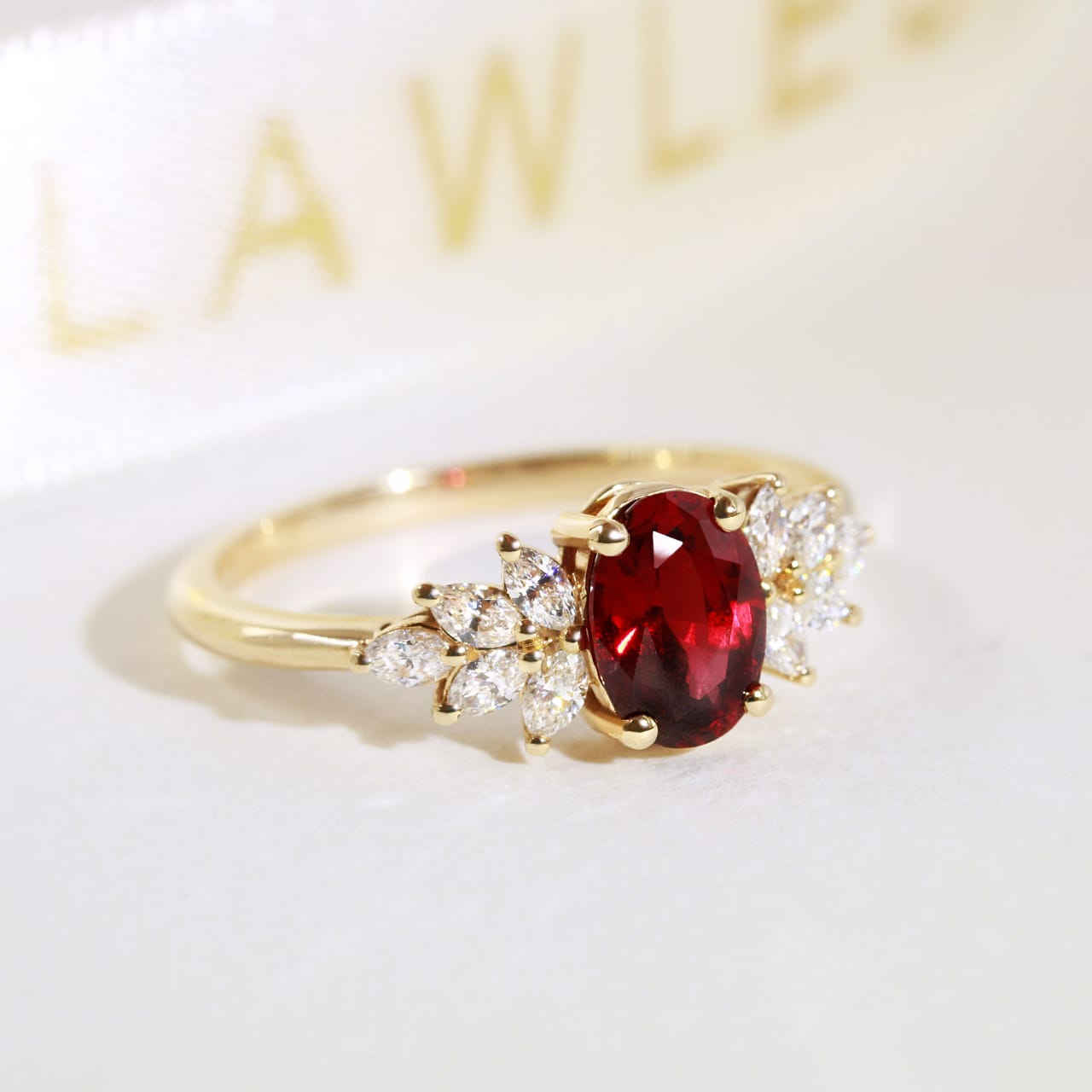Intensely romantic, rubies have been national favorites since antiquity simply for their sensuous deep red color and symbolism in the desire for an elegant lifestyle. Wondering if there are lab-created rubies in the present day where natural rubies have become scarce and quite costly? Indeed the answer is yes, and lab-grown rubies are already becoming increasingly popular as a result of their cost effectiveness to produce combined with being an ethically conscious and environmentally friendly way. In this article, we will look at what there are lab grown rubies and how they stack up against natural ones to explain why these now make a great buy for consumers.
What Are There Lab Grown Rubies?
Synthetic or lab-created rubies are gemstones formed in labs under strict conditions. These are wild rubies that have all the physical characteristics of a natural ruby (for example made out of an individual mineral called corundum with follow measures chromium). They have the same hardness, durability, and optical qualities as natural rubies even if they are grown in a lab.
If you were asking whether are there lab grown rubies that rival natural ones in beauty. The answer is yes. The rubies are all grown in a lab to duplicate the natural stone, meaning they could also be distributed up at Kilimanjaro if given away. Available in several sizes and cuts, these are perfect for almost every type of jewelry from rings to necklaces.
Are Lab-Grown Rubies Real?
One of the more common questions I hear people ask is “Are there lab grown rubies” Lab-grown rubies are real! Even so, lab-created rubies have the exact chemical and physical characteristics of an actual ruby. The difference is that natural rubies form in the Earth’s crust over millions of years, whereas lab-created stones are made in a laboratory and can take just weeks or months to grow.
However, due to their similar properties, lab-grown rubies are equally hardy and valuable for various practical uses such as jewelry making or even industrial applications. Indeed, they are regarded by gemologists and throughout the jewelry industry in general as if they were no less genuine than “natural” materials.
Synthetic Rubies vs Natural Rubies
Here are some of the most important factors that define lab-grown rubies when compared to natural ruby gems:
- Lab Created vs Natural: Some lab-grown rubies do not have as many inclusions (flaws) or clouds as natural rubies might due to the formation process being controlled. This will make them sharper and more vivid looking.
- Affordable: And one of the best things about lab-made rubies as well. Because of exclusion from mining and rarity, they can also cost up to 75% less than a natural ruby. In short, this makes lab-grown rubies an amenable middle-ground alternative to those wishing for the beauty of a ruby while not paying for it.
- In the Battle for Ethics and Sustainability: Do any synthetic Rubies align with concerns of ethics and the environment? Absolutely. It means lab-grown rubies have a higher sustainability factor, on the grounds they are not created by mining which can be damaging to the environment and exploit labor in places. Opting for lab-grown rubies is an ethical and sustainable choice.
- Rare: Natural rubies are rare especially ones with a high-quality intense red color and fewer inclusions. Although lab-grown rubies are far less rare, they are still high-quality stones that can be created in larger quantities.
Conclusion
Well, are there lab grown rubies? Which provides an ethical and economical alternative to natural rubies that performs evenly in all possible respects. Whether you are in search of an engagement ring, statement necklace, or earrings that stand out from others, lab-grown rubies present a brilliant choice for today’s everyday consumer. But their actual chemical composition and captivating looks mean lab-created rubies are not simply a replacement for natural rubies; treating them as such would surely be a valuable mistake.
Keep an eye for more news & updates on jobshankar.net!
